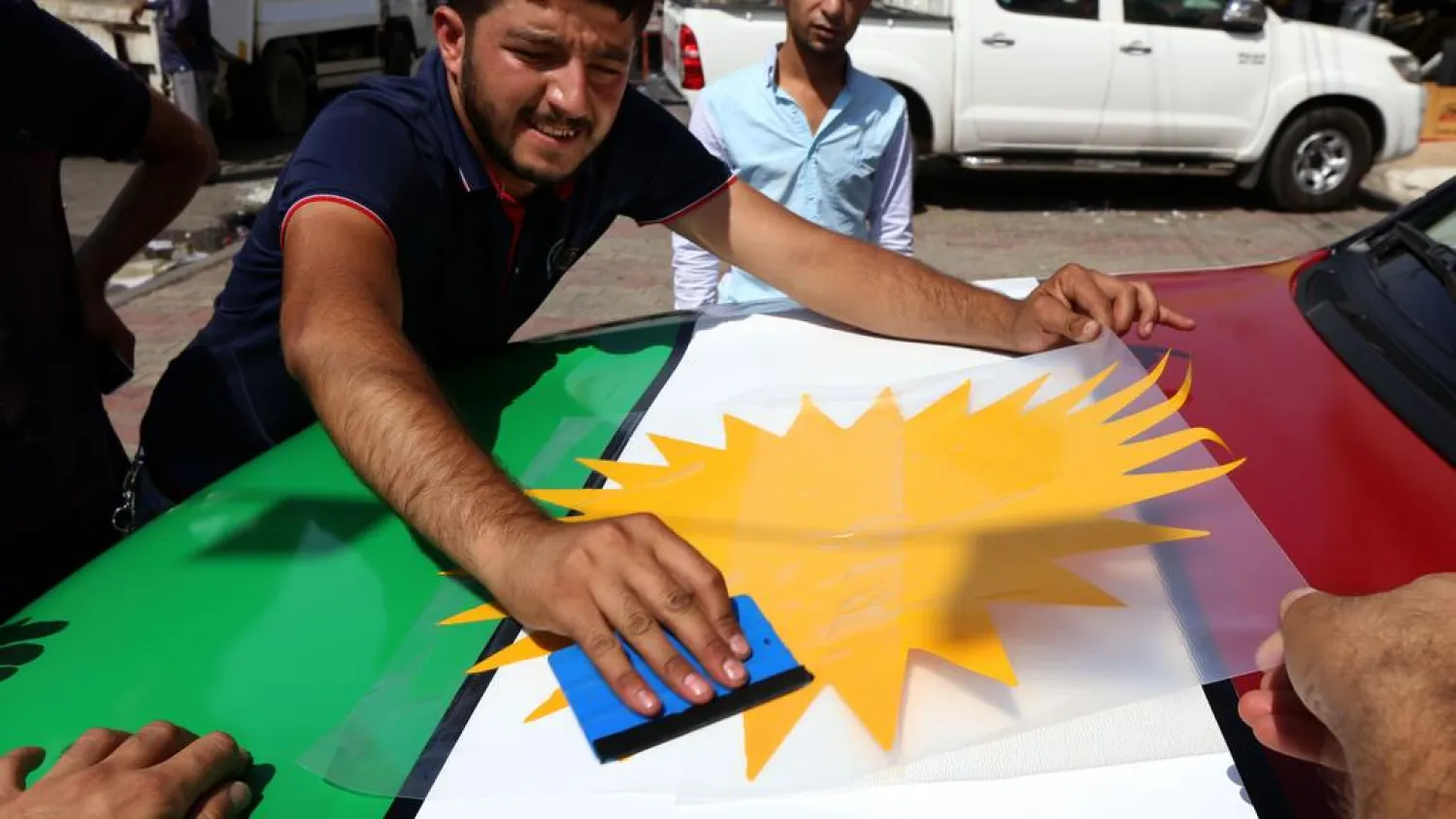All international flights to and from the Kurdistan Region were suspended from Friday evening after the Iraqi central government enforced a travel ban in response to the referendum on independence held by the Region last Monday.
The travel ban came as Kurdish authorities insisted to calm the situation by calling for an urgent meeting with officials in Baghdad to solve the crisis.
But at the same time, the Kurdistan Regional Government (KRG) rejected to hand over 3 border gates to Baghdad.
Last Tuesday, Iraqi Prime Minister Haider al-Abadi said that if border crossings are not given to Baghdad within three days, “we will stop all international flights from and to the KRG.”
Therefore, a battle of the three main crossing gates is looming as the Iraqi Defense Ministry asserted it plans to control the gates in coordination with Iran and Turkey.
“Plans to impose the authority of the central government over land and air borders are going as has been planned in coordination with concerned parties and neighboring countries and there is no delay in the procedures,” the ministry said in a statement issued Friday.
The three border gates are the Ibrahim al-Khalil border crossing in Zakho, Dohuk, on the Turkish border, the Bashmakh border crossing on the Iranian border near the city of Sulaymaniyah, and Haj Omran, another crossing into Iran.
Almost all international air companies suspended their flights to the two international airports in Irbil and Sulaimani on Friday in response to the Iraqi-imposed ban on international flights to and from the Kurdistan Region.
However, the ban will not affect the internal airports. Therefore, the majority of travelers are expected to land at the Baghdad airport, which expects to witness masses of travelers due to the addition of flights on its schedule. On Friday, the two airports of Irbil and Sulaimani were packed with foreign travelers who rushed to leave the area before the ban comes into effect.
For his part, US Secretary of State Rex Tillerson said on Friday that Washington did not recognize the referendum.
"We encourage all sides to engage constructively in a dialogue to improve the future of all Iraqis," Tillerson said.
The US position came as the highest Shi’ite reference in Iraq Ali Al-Sistani interfered for the first time in the crisis and announced his objection to the division of the country.
In a statement read in the Shiite holy city of Karbala by cleric Ahmad al-Safi during Friday prayers, al-Sistani said all parties in Iraq should abide by the Iraqi constitution.
Also, the Iranian semi-official news agency Tasnim said on Friday that Iran has banned the transportation of refined crude oil products by Iranian companies to and from Iraq’s Kurdistan region, after Tehran vowed to stand by Baghdad following the region’s vote for independence, Reuters reported on Friday.









